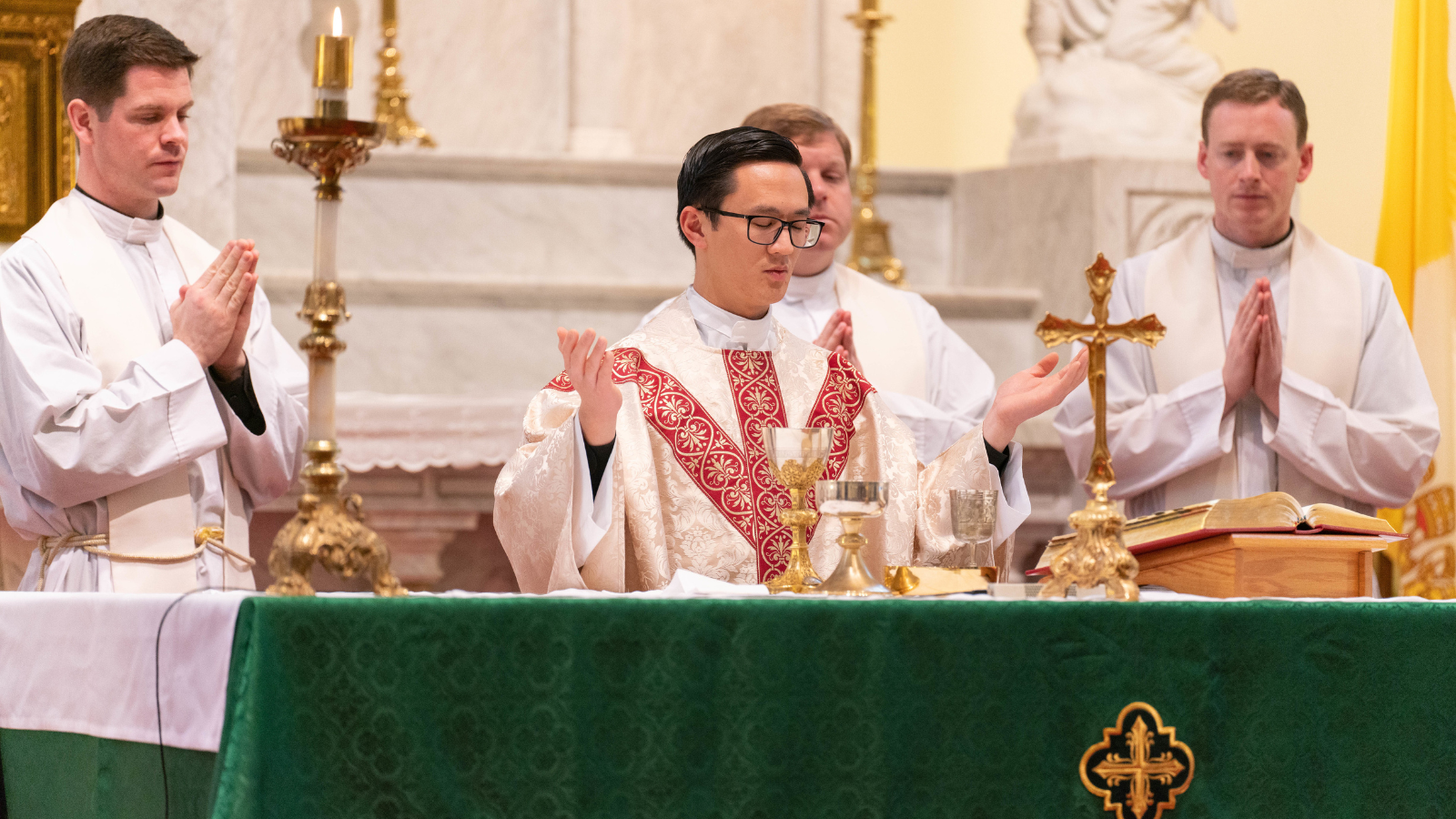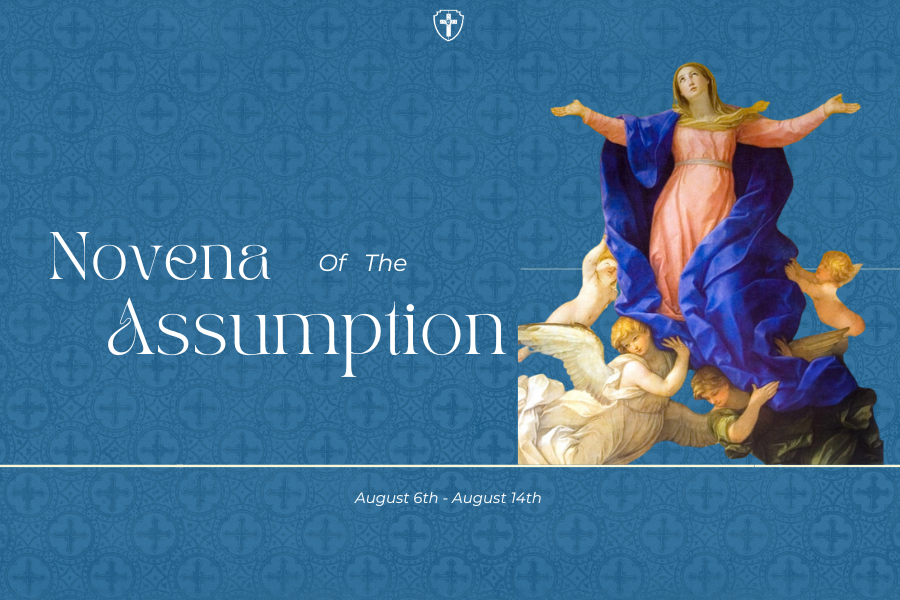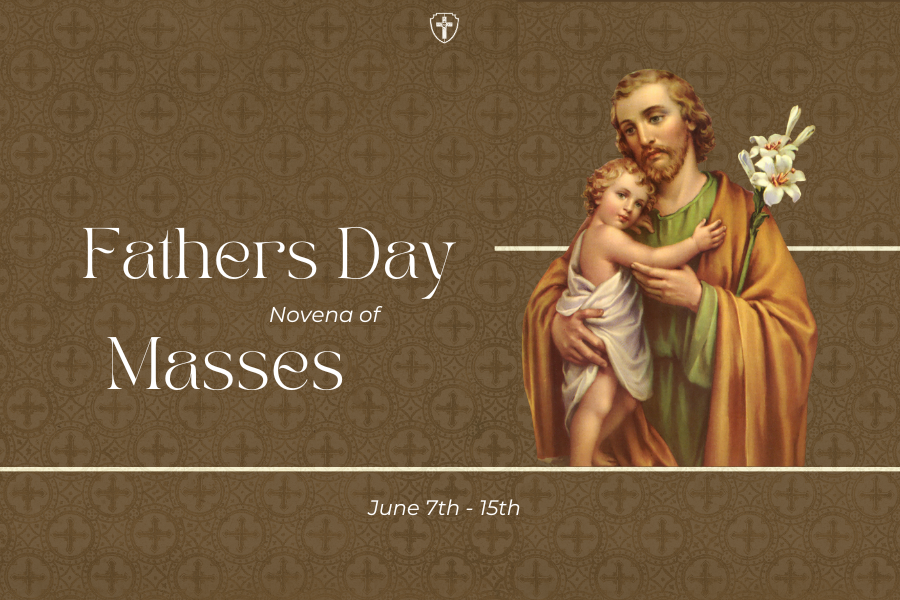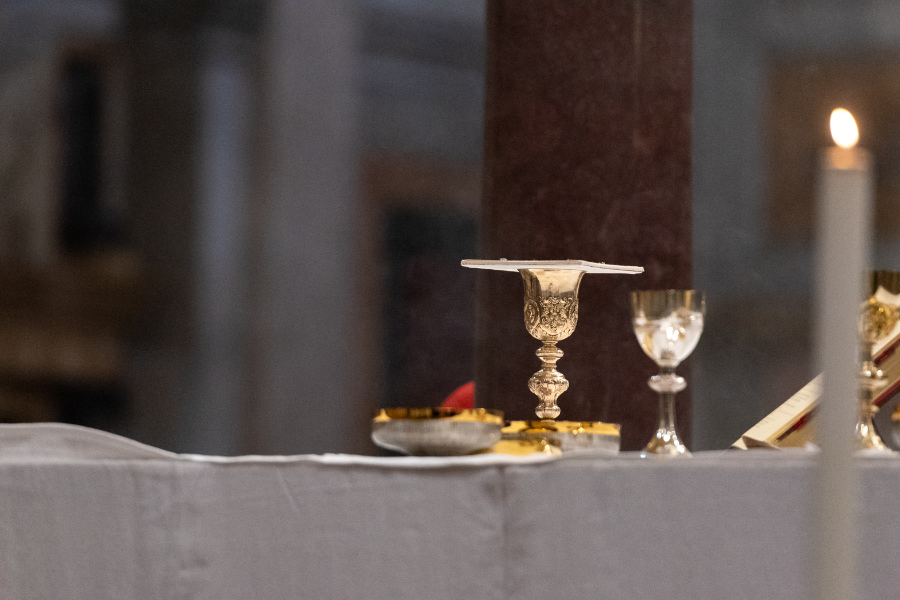The word “novena” comes from the Latin “novem,” which means nine. Thus, novenas always include nine of something: months, weeks, days, hours or even the same prayer repeated nine times.
Novenas are an ancient tradition that goes back to the days of the Apostles. Jesus told His disciples to pray together after His ascension into heaven, so the apostles along with Mother Mary and other followers of Jesus gathered to pray in the Upper Room during the nine days between Ascension and Pentecost. (Thus, the recognition as the “first novena.”)
Why Pray a Novena?
First, the prayers are specific, which helps us make our needs before God specific without telling God how to answer our prayer. We should pray novenas because they are a valuable form of conversation with God and His saints. They flow from faith, and God always attends to the prayers of His faithful.
Second, the prayers include an expression of trust and confidence in God’s ability to answer them. We may pray for many requests in our lives, but as we pray novenas, we are praising, preparing, waiting, and trusting in His path. And we will be rewarded, just as Christ’s first disciples were, in God’s promise.
Third, repeating prayers and repeating them over time can be helpful because we often need that length of time to move beyond merely making a request to learning to listen to God as He speaks to us in prayer. The length of time to pray the novena gives us time to consider more aspects of our prayer intention than just receiving the answer. We develop our relationship with God, and that is often more lasting than the actual result we see from praying with faith. The relationship with God Himself is essential, and a novena reminds us that the relationship takes time.
Why a Novena of Masses instead of just nine days of prayer? Because the Eucharist is the source of our spirituality. In our constitutions, it states:
The Eucharist, source of spirituality
92. For the Legionary, the Eucharist is the summit of his day and the source of his action. His identification with Christ arises from it. The Lord makes himself present in the Eucharistic celebration, “he who once offered himself on the cross now offers himself through the ministry of the priests”4 (CLC 51, 2º). The Legionary, accompanied by Our Lady of Sorrows at the foot of the cross (CLC 15), makes an oblation of himself to the Father—as offering, victim, and altar— together with Christ the priest, in order to conquer sin and make his Kingdom of love triumph.
93. The definitive triumph of Christ’s love—the climax in which he establishes his Kingdom (CLC 11)—is the Paschal mystery, which is made present in every celebration of the Eucharist5. A burning love for his neighbor (CLC 10) and the desire to proclaim the gospel (CLC 11) spring forth in the priestly heart of the Legionary from the love of Christ, who was made flesh, died, and rose for the salvation of all men and women.
“As for the reason why we pray novenas: It’s a tradition that goes all the way back to the Apostles and Pentecost! Jesus told the apostles to remain in Jerusalem until the coming of the Holy Spirit (Acts 1: 4-5), so they stayed there with Mary and prayed for 9 days until the feast of Pentecost, when the Holy Spirit came upon them. So as Legionaries we join in this ancient tradition of prayer for nine days before important feasts. As priests, we are able to pray novenas in a special way by offering up the Mass for special intentions for 9 consecutive days, asking the Holy Spirit to inspire and act in the lives of the people we pray for. Also, it’s important to know that the effect of the novena is much greater if those who enroll in them join with us in prayer!”
-Fr Nathan Torrey, LC
Please join us and witness the impact Novenas will have on your prayer life.
